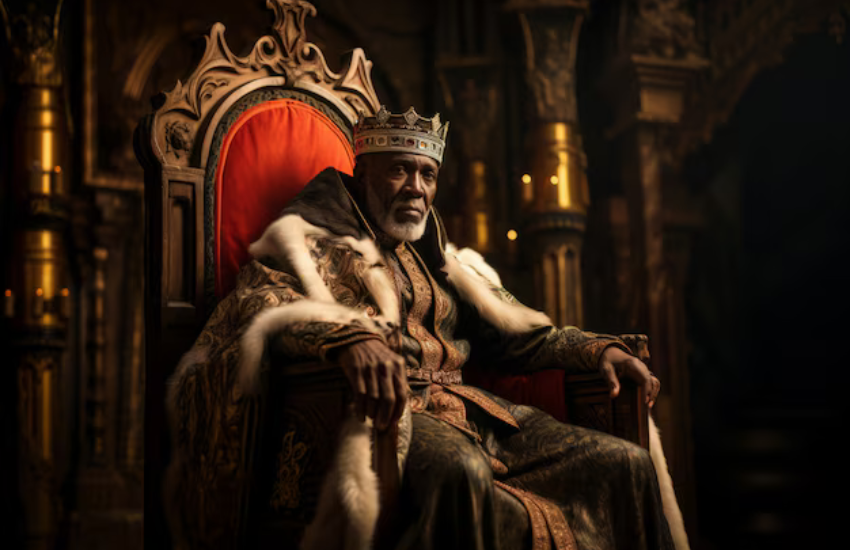Early Life and Background
Born around 1000, Robert was the son of Richard II, Duke of Normandy, and Judith of Brittany. As a scion of the House of Normandy, Robert was part of a lineage that traced its origins to Viking settlers led by Rollo, who had been granted the duchy by Charles the Simple in 911.
Robert’s upbringing was steeped in the martial culture of Normandy, where Norse traditions mingled with Frankish customs. He demonstrated an early aptitude for leadership and strategy, which prepared him for his eventual ascension as duke.
The Norman Dynasty
Normandy emerged as a powerful duchy in the 10th century, with its rulers skillfully balancing their Viking heritage and Christianization. The dukes of Normandy maintained relative autonomy from the French crown, forging their own political and military path. By the time Robert assumed power, Normandy had become a prosperous and influential region.
Rise to Power
Robert became Duke of Normandy in 1027, following the death of his elder brother, Richard III. His ascent was not without controversy, as some accused him of playing a role in his brother’s demise. Nevertheless, Robert secured his position and worked to consolidate his rule, overcoming factional disputes and reinforcing his authority across the duchy.
The Challenges of His Reign
Robert’s rule was marked by significant challenges, including rebellions among the Norman nobility and conflicts with neighboring territories. He also faced opposition from the French crown, which sought to curtail Norman autonomy. Despite these difficulties, Robert maintained control through a combination of military strength and political acumen.
Robert’s Military Campaigns
Robert demonstrated considerable skill as a military leader. He conducted campaigns to secure Normandy’s borders and suppress internal dissent. Notably, he expanded Norman influence through strategic alliances and decisive battles, ensuring the duchy’s stability during his reign.
Pilgrimage to Jerusalem
In 1035, Robert embarked on a pilgrimage to Jerusalem, a journey that was both spiritual and political. This undertaking demonstrated his piety and bolstered his reputation among Christian rulers. Unfortunately, he fell ill and died during his return journey, leaving Normandy in the hands of his young son, William.
Relationships and Alliances
Robert forged important alliances through marriage and diplomacy. His relationship with Herleva, the mother of William the Conqueror, has been the subject of much historical debate. Though they were not married, their union produced a son who would change the course of European history.
Cultural Contributions
Under Robert’s rule, Normandy experienced a period of cultural flourishing. The construction of churches and monasteries reflected his commitment to Christianity, while his patronage of the arts helped solidify Normandy’s reputation as a center of cultural innovation.

Succession and Legacy
Robert’s untimely death left Normandy in a precarious position, with his young illegitimate son, William, inheriting the duchy. Despite these challenges, William eventually rose to prominence as one of history’s most renowned figures, the Conqueror of England. Robert’s legacy lived on through his son’s achievements and the enduring influence of the Norman dynasty.
The Legend of “Robert the Devil”
The epithet “Robert the Devil” originates from tales that portrayed him as a ruthless and cunning figure. These stories, likely exaggerated or fabricated by rivals, underscore the complex and often contradictory views of his character.
Influence on the Norman Conquest
Robert’s reign laid the foundation for the Norman conquest of England. His efforts to strengthen Normandy ensured that William inherited a stable and powerful duchy, enabling the ambitious campaigns that followed.
The Role of Normandy in Medieval Europe
Under Robert’s leadership, Normandy solidified its status as a key player in medieval European politics. The duchy served as a cultural and military bridge between Scandinavia, France, and England, influencing the broader trajectory of European history.
Historical Perspectives on Robert
Historians view Robert’s reign with a mix of admiration and critique. While some highlight his achievements in governance and military strategy, others focus on the controversies that surrounded his rule. Nevertheless, his impact on Normandy and Europe is undeniable.
Conclusion: Robert’s Enduring Impact
Robert the Magnificent was a complex and dynamic leader whose life and reign left an indelible mark on medieval Europe. From his efforts to consolidate Norman power to his role as the father of William the Conqueror, Robert’s legacy endures as a testament to the strength and ambition of the Norman dynasty.


